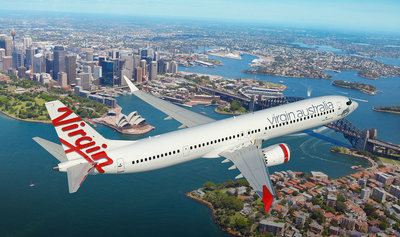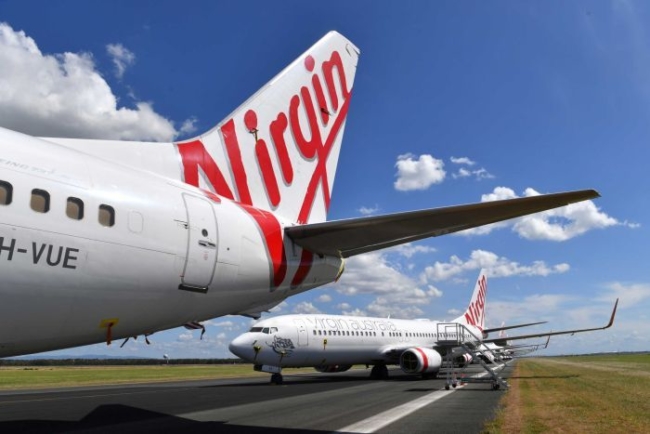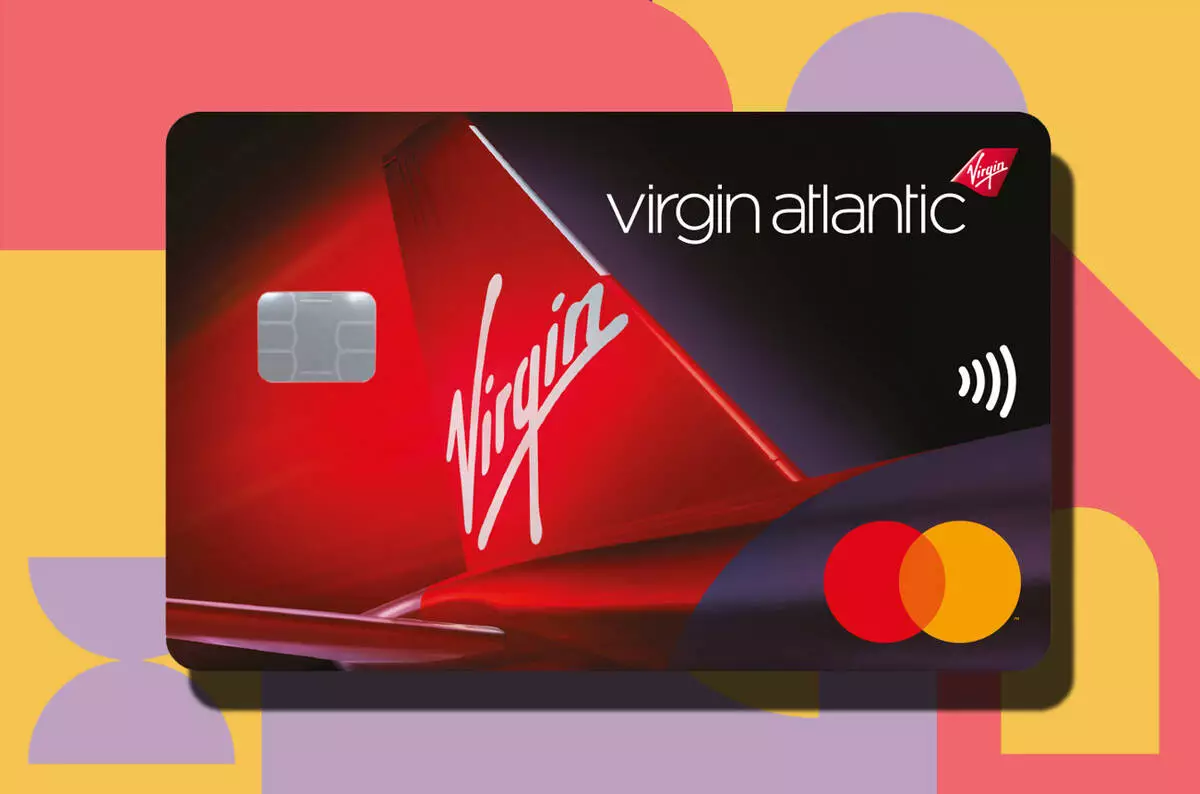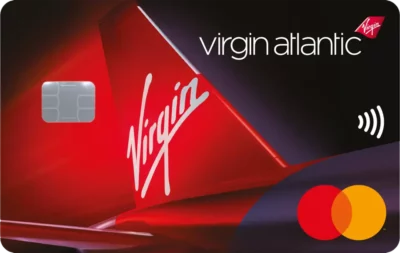Virgin Australia may live on as 10+ companies express interest in saving it
Links on Head for Points may support the site by paying a commission. See here for all partner links.
Virgin Australia is the largest airline so far to go into administration due to the coronavirus.
We covered the fall of Virgin Australia into administration in this article last week. The end was not a surprise, given that the federal Government had refused any financial support and the shares had already been suspended.
None of the existing shareholder base was realistically in a position to help. You are looking at HNA, the struggling Chinese conglomerate, Etihad Airways, which has been perfectly happy to see its other overseas investments fail, Singapore Airlines, which has just received its own bailout and Nanshan Group, owner of China’s Qindao Airlines. Virgin Group itself controlled only 10% of the airline.

Although Virgin Atlantic and Virgin Australia have vastly different ownership structures and route networks, Virgin Australia offers a template for what might happen if the same fate were to befall Virgin Atlantic.
Key efforts are currently focussed on re-capitalising the airline and re-booting domestic operations. The company owes at leasts AU$7 billion (£3.5 billion) to creditors, including around AU$450 million to its 10,000 staff.
A key part of the administration process will be shedding as much of this debt as possible.
The largest share of of the pot is owed to 26 secured corporate debt and aircraft financers who were owed about AU$2.3 billion. 94 aircraft leases are capitalised for a combined AU$1.9 billion.
The airline has a fleet of 144 aircraft so it could downsize significantly if it wanted to shed some of the leases during administration. A federal court has given the administrators an additional month to decide what to do about the 94 aircraft the airline has leased.
The leases and aircraft mortgages are, of course, secured on the aircraft. The lessors are NOT necessarily taking massive losses if the aircraft are returned, as long as the aircraft can be passed on to another operator (admittedly unlikely in the short term). It is more likely that Virgin Australia immediately signs new leases on same aircraft and takes many of them back.
Virgin Australia is likely to continue in one form or another
There does appear to be widespread interest in the airline. At least 10 and as many as 20 companies are reported to be interested, including domestic heavyweights such as Macquarie Group and Wesfarmers. Such keen interest suggests that Virgin Australia will live on and not be sold in piecemeal portions.
Whether the Virgin brand would continue would be subject to separate negotiation. The current royalty payment was reportedly 0.5% of revenue which is arguably good value given the value it brings to the business.

Macquarie is the world’s largest infrastructure asset management group and has previously bid for Qantas, whilst Wesfarmers owns a variety of consumer goods businesses including supermarket Coles. According to the Sydney Morning Herald the company has shown a “strong interest in loyalty programs” which could make it an appropriate suitor for Virgin Australia and (or possibly ‘or’) its Velocity frequent flyer program.
Government interest remains despite the lack of a federal bail out for the airline. Numerous states including New South Wales, Queensland and Victoria appear interested in offering packages in exchange for corporate re-location and/or greater domestic connectivity.
Rivalry between the states is vicious and Queensland has not reacted well to New South Wales’ suggestion that Virgin Australia vacate its current corporate HQ in Brisbane for one in Sydney.
Even if Virgin Australia manages to reboot itself, there is concern that any recovery will be fraught. Qantas retains the ability to dump capacity on routes in an effort to force out smaller players. The Chairman of the Australian Competition and Consumer Commission has said it will work with the government to ensure that Qantas does not use its size to try and limit competition.
Can one market sustain two airlines?
Although Virgin Atlantic and Virgin Australia operate(d) wildly different networks in differing markets – Virgin Australia is primarily domestic with a handful of long-haul flights whilst Virgin Atlantic flies only long haul – both airlines operate as an underdog in markets with a large incumbent airline.
The question Australian and British governments are facing is whether they should assist a second airline in the market. The widespread interest by states and private companies in Virgin Australia’s continued survival suggests that it is worth Government doing what it can to ensure a stable trading environment in order for new shareholders to come in.
PS. If you are not a regular Head for Points visitor, why not sign up for our FREE weekly or daily newsletters? They are full of the latest Avios, airline, hotel and credit card points news and will help you travel better. To join our 70,000 free subscribers, click the button below or visit this page of the site to find out more. Thank you.

How to earn Virgin Points from UK credit cards (July 2025)
As a reminder, there are various ways of earning Virgin Points from UK credit cards. Many cards also have generous sign-up bonuses.
You can choose from two official Virgin Atlantic credit cards (apply here, the Reward+ card has a bonus of 18,000 Virgin Points and the free card has a bonus of 3,000 Virgin Points):

Virgin Atlantic Reward+ Mastercard
18,000 bonus points and 1.5 points for every £1 you spend Read our full review

Virgin Atlantic Reward Mastercard
3,000 bonus points, no fee and 1 point for every £1 you spend Read our full review
You can also earn Virgin Points from various American Express cards – and these have sign-up bonuses too.
The American Express Preferred Rewards Gold Credit Card is FREE for a year and comes with 20,000 Membership Rewards points, which convert into 20,000 Virgin Points.

American Express Preferred Rewards Gold Credit Card
Your best beginner’s card – 20,000 points, FREE for a year & four airport lounge passes Read our full review
The Platinum Card from American Express comes with 50,000 Membership Rewards points, which convert into 50,000 Virgin Points.

The Platinum Card from American Express
50,000 bonus points and great travel benefits – for a large fee Read our full review
Small business owners should consider the two American Express Business cards. Points convert at 1:1 into Virgin Points.

The American Express Business Platinum Card
50,000 points when you sign-up and an annual £200 Amex Travel credit Read our full review

The American Express Business Gold Card
20,000 points sign-up bonus and FREE for a year Read our full review
Click here to read our detailed summary of all UK credit cards which earn Virgin Points.



 Rhys
Rhys 





Comments (19)